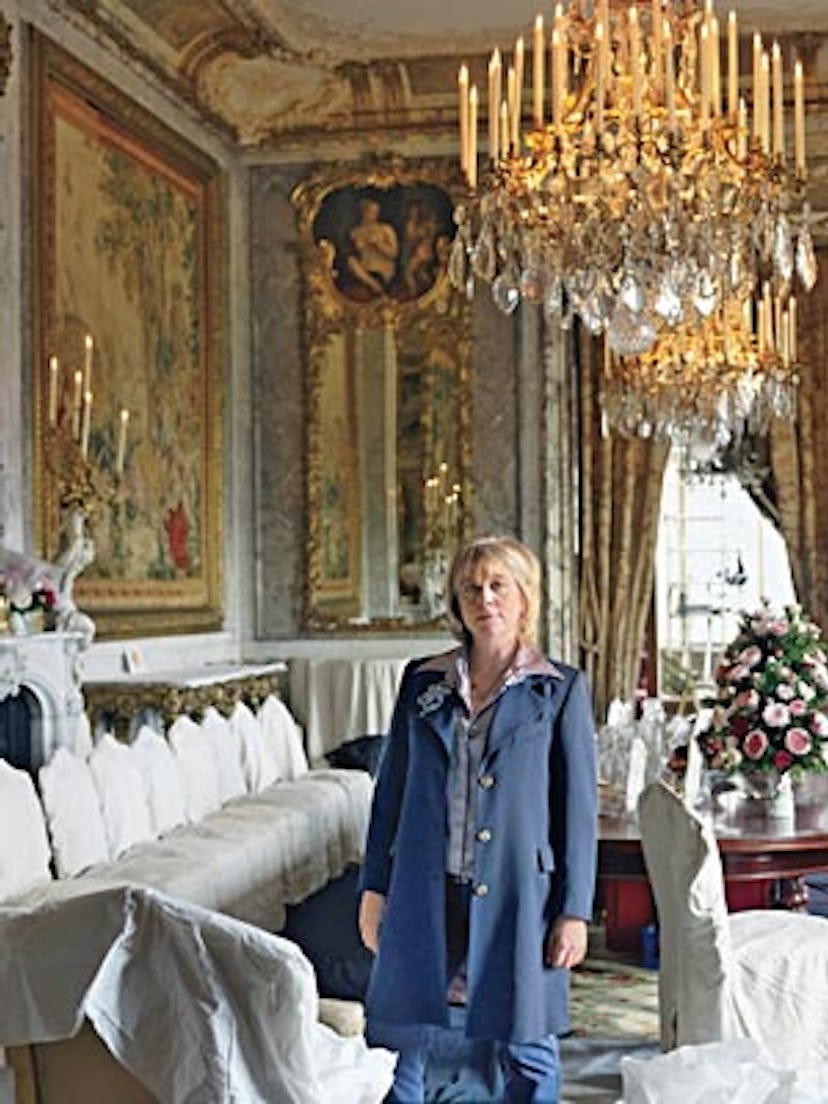Of Bebop and Baronesses
In a new film, Hannah Rothschild tells the story of her great-aunt Pannonica, an unlikely jazz patron.

Baroness Pannonica de Koenigswarter (Nica for short) was born and raised a Rothschild in a 17th-century Buckinghamshire mansion, where houseguests included King Edward VII, and zebras and emus roamed the estate. She ended her days—happily—in Weehawken, New Jersey, with hundreds of pet cats, living in a not-quite-organized home where she would rise at 4 p.m., breakfast on a brandy Alexander and then steer her Bentley across the Hudson River to spend her nights thrilling to the jazz music she loved. Known as the Bebop Baroness, Nica left her marriage to spend her life with a generation of pioneering musicians, most notably her longtime friend Thelonious Monk. She nursed the dying Charlie Parker in her suite at the Stanhope Hotel and regularly raced Miles Davis down Fifth Avenue. Once, after losing, she rolled down her car window to bark, “You motherf—er,” at her victorious pal.
London filmmaker Hannah Rothschild, Nica’s great-niece, doesn’t recall hearing anything about her illustrious relative until the Seventies, when she spotted her name on the family tree and began asking questions. The lack of answers undoubtedly had to do with the fact that Nica, with her long cigarette holders and habit of firing her pistol at the Stanhope chandeliers, was such an unconventional figure. Unlike the Kennedys or the Agnellis, the Rothschilds aren’t a scandal-prone clan: They bank, make wine, collect art and generally stay out of trouble. They do have their share of eccentrics—Nica’s sister Miriam was an insect expert known as the Queen of the Fleas—but rarely does a rebel emerge. “They stick together, and on the whole they’re quite discreet,” says Rothschild, whose poignant documentary The Jazz Baroness will air on the BBC on April 17 and is tentatively slated for HBO later this year.
No one knows about the Rothschilds’ code of silence better than Hannah, who forged ahead with the film without the cooperation of Nica’s children—her father’s cousins. “I think they worried I would misrepresent their mother,” says Rothschild of Nica, whose adventures with the black musicians generated mountains of copy for New York tabloids during the Fifties and Sixties. But the family had nothing to fear: The film is a tribute to Nica, who, after hearing a recording of Monk’s music in the late Forties, swapped a conventional life with her husband, the French Baron Jules de Koenigswarter, and their five children for a fizzing existence in the jazz clubs of New York. She met the mentally ill—and married—Monk in 1954, when she was 41; he would become her soulmate for the next three decades. “She was absolutely part of the jazz world, and that went on until her death in 1988,” Rothschild says of her great-aunt, who offered friendship and financial support to Monk and his circle. Nica and Monk lived together for 10 years, along with the eldest two of Nica’s children and the cats, in the Weehawken house. “It wasn’t a love affair,” says Rothschild. “There were other things that were keeping them together. She made his life much easier at a time when he desperately needed help. And he gave her validity and purpose.”
Rothschild pulled together an eclectic cast to tell Nica’s story, including Helen Mirren, who is the voice of the Baroness; jazz aficionado Clint Eastwood, who also gave Rothschild recorded interviews of Nica from the documentary Straight No Chaser, which he produced; the Dowager Duchess of Devonshire, who shares memories of a pampered youth and Thirties debutante balls; her father, Lord Jacob Rothschild; and jazz musicians Chico Hamilton and Roy Haynes.
The project was liberating for Rothschild, who states frankly that as a member of her family, “you feel the weight of other people’s achievements. It can be quite overbearing. And here was someone who got away, who reinvented herself. Also, I thought she was rather glamorous.” Rothschild, who shares a spacious home in northwest London with her three young daughters, is currently at work on a biography of Nica, to be published by Virago Press. And although she may not be opening her house to a legion of cats any time soon, or challenging friends to drag races on Sloane Street, she says her great-aunt taught her a lesson.
“You don’t have to live a two-by-four life,” Rothschild says. “Dare to be different.”